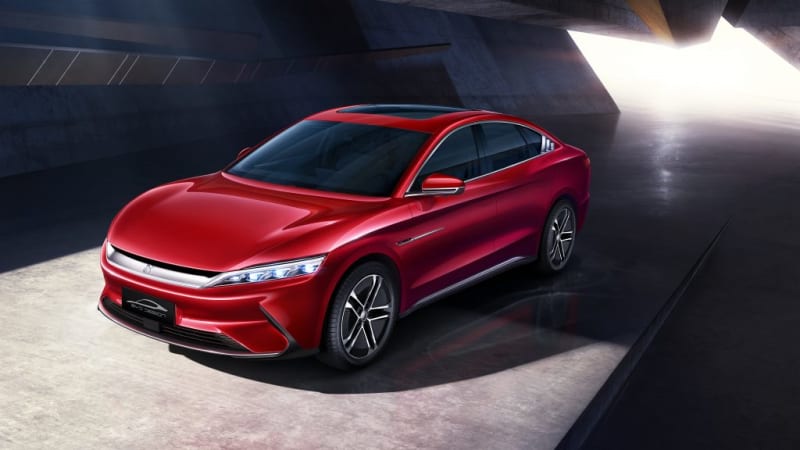Audi Repair Shop Doylestown
Call 267 279 9477 to schedule a appointment

Chinese automaker BYD is heralding what it says is a breakthrough in battery safety in electric vehicles as it launches its Blade Battery, a design that it claims has 50% higher energy density than a conventional battery packs while safeguarding against thermal runaway-induced fires that have plagued some EVs.
The new battery uses a lithium iron phosphate chemistry but does away with conventional battery-pack architecture. It will feature in the new Han EV, the brand’s flagship sedan that is scheduled to launch in June, and is said to deliver nearly 376 miles in driving range to go with a 3.9-second 0-62 mph launch time.
BYD outlined the new technology, which it has been developing for several years, in a 51-minute online event dubbed “The Super Launch,” delivered on a stage that resembles a “Star Wars” set. In the video, the company explains that it removed the traditional modules and beams that normally give a battery pack its support and fixation to improve space utilization. The Blade Battery doubles as a structural part by compressing and extending the battery cell, so that each of the 100 cells acts as its own beam, and fixing the pack to the frame. It has an ultra-strong structure that can bend along its length, but not along its edge. The company then pasted high-strength panels to the upper and lower sides, forming an aluminum honeycomb panel to further add strength.
He Long, Vice President of BYD Co. Ltd. and chairman of FinDreams Battery Co. Ltd., said lithium iron phosphate has a very stable chemical structure that resists catching fire, heats up slowly, limits heat release during a collision and releases no oxygen, which is highly conducive to feeding fires. The company says it subjected its battery to being penetrated by a nail, heated to 572º F, overcharged by 260%, crushed and bent, with no fires or explosions resulting.
The National Highway Traffic Safety Administration last year reviewed whether Tesla should have recalled 2,000 vehicles instead of issuing a software update to address defective batteries that were prone to catching fire.
We should note that Chinese automakers have a long track record of overpromising and under-delivering. But BYD in this case may be different. The company launched in 1995 as a rechargeable-battery manufacturer, largely for mobile phones, and the reputation of its founder, Wang Chuanfu, persuaded Warren Buffet to acquire a stake in the company in 2009 as global markets were in full panic mode. Since buying a state-owned automaker in 2003, BYD has grown to become the largest electric vehicle maker in China, though its sales have skidded in recent months due to declining EV subsidies and disruptions from the Lunar New Year holiday and the coronavirus.
BYD says automakers have sacrificed safety considerations in pursuit of higher-energy-density batteries that deliver longer driving range. It said it is open to working with partners to share its technology.
from Autoblog https://ift.tt/2QTeaUU
